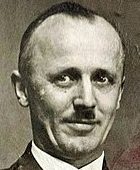Rationale for Inclusion
- World’s First Flight Attendant: Heinrich Kubis holds the distinction of being the world’s first flight attendant, a pioneering role that laid the groundwork for what would become a critical aspect of commercial air travel. Kubis began his career in aviation in 1912, aboard the DELAG Zeppelin LZ 10 Schwaben, serving passengers on board. This groundbreaking role introduced the concept of in-flight service and passenger care, elements that are now central to modern air travel.
- Pioneering Passenger Service in Early Aviation: Kubis worked in an era when air travel was still in its infancy, and passenger service aboard airships was a new concept. He not only helped passengers feel comfortable during flight but also played a vital role in ensuring their safety. As air travel became more accessible, Kubis’s role as a flight attendant set the precedent for the professional standards of care and hospitality that flight attendants still follow today.
- Safety Leadership: One of the most notable moments in Heinrich Kubis’s career occurred during the infamous Hindenburg disaster in 1937. Kubis was aboard the LZ 129 Hindenburg, serving as chief steward, when the airship caught fire and crashed while attempting to land in Lakehurst, New Jersey. Displaying remarkable calm and leadership, Kubis helped guide passengers to safety during the disaster. His actions contributed to saving lives, and his efforts demonstrated the importance of trained flight attendants in managing emergencies.
- Setting Professional Standards for Flight Attendants: Kubis’s role as the first flight attendant introduced a professional standard of passenger care and safety that remains a critical aspect of air travel today. His attention to passenger comfort and safety helped establish the foundation for the cabin crew profession. The position he pioneered would eventually evolve into a formalized profession with training and certification, providing essential services to passengers and contributing to overall flight safety.
- Historical Impact on Commercial Aviation: As the first flight attendant, Kubis’s work had a lasting impact on the commercial aviation industry. The concept of having trained personnel dedicated to passenger service became a standard part of airline operations. His pioneering work helped transform air travel into a more comfortable and accessible experience for passengers, which was essential in the early days of commercial aviation when many people were apprehensive about flying.
- Legacy in Aviation History: Kubis’s legacy in aviation extends beyond his work aboard airships and airplanes. His pioneering role helped formalize the position of flight attendants, a profession that has become a vital part of modern air travel. His influence on safety protocols, passenger care, and in-flight hospitality has endured for over a century, making him a foundational figure in the history of commercial aviation.

Biography
- Early Life and Education: Heinrich Kubis was born in Germany in the late 19th century. Little is known about his early life and education, but he grew up in a period when air travel was still in its infancy, with the development of airships and early aviation technologies capturing the world’s imagination.
- Personal Life: Heinrich Kubis led a relatively private life, and details about his personal life are scarce. However, it is known that Kubis had a background in hospitality, which played a key role in his career.
- Early Career: Kubis trained as a waiter and worked in several luxury hotels in Europe, including the Hôtel Ritz Paris and the Carlton Hotel, London. In March 1912, Kubis began attending to passengers on the LZ 10 Schwaben during flights from Berlin to Friedrichshafen.
